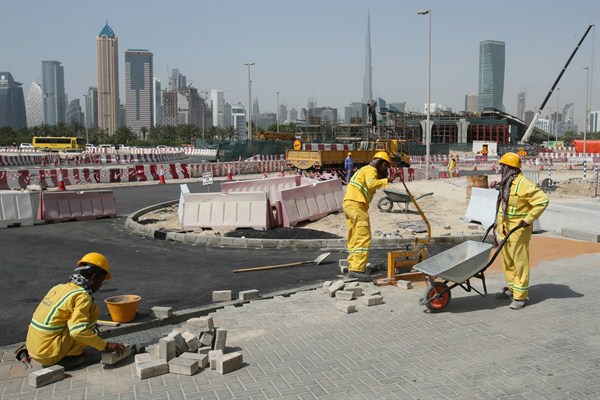Editor’s note: This article is part of an ongoing WPR series about workers’ rights in various countries around the world.
Rich in wealth but scarce in human capital, the Arab countries of the Persian Gulf have relied heavily on migrant laborers for much of the last half century. In recent years, however, social tensions and a severe economic downturn have put pressure on the region’s migrant labor force and caused many workers to be expelled. In an email interview, Karen Young, senior resident scholar at the Arab Gulf States Institute in Washington, explains the policy underpinning migrant labor in the Gulf, what has motivated the out-migration of workers, and how the downturn in Gulf economies has affected those who are most vulnerable.
WPR: Migrants and expats make up a huge part of the labor force in the Gulf. What have the Gulf countries’ policies been regarding migrant labor and how have they evolved over time?

